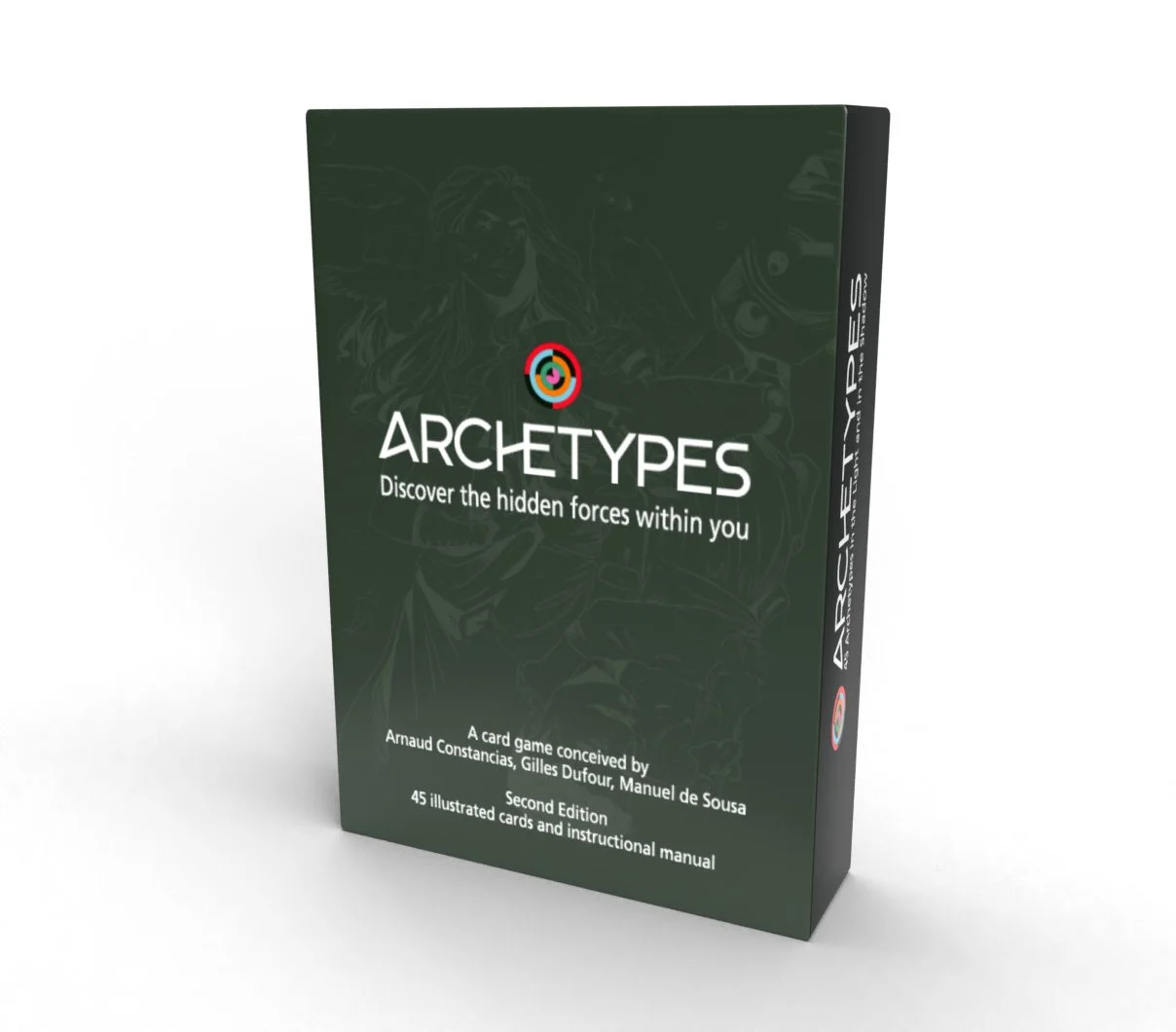A powerful tool for your leadership: the Archetypes game.
Are you a leader, HR professional, coach, therapist, or facilitator? Do you want to help your clients, or yourself, to:
Gain awareness and relational agility,
Find the right balance between authenticity and kindness for an aligned and inspiring leadership,
Identify tensions or blocks caused by behaviors that are either too dominant or, conversely, neglected, in order to restore harmony and effectiveness in your leadership stance.
Archetypes: the invisible keys to your leadership
In your professional life, you unconsciously embody different roles such as the Strategist, the Sage, the Rebel, the Protector, or the Creator. But do you really know which ones you activate, which hold you back, or which remain untapped?
According to C.G. Jung, these roles called archetypes are universal figures stemming from the collective unconscious. They reflect deep dynamics that influence your behavior, decisions, and leadership style.
When recognized and well mastered, these archetypes become powerful inner compasses:
they strengthen your alignment, impact, and presence. Ignored or misused, they cause rigidity, loss of vision, or excessive authority.
Be and Lead invites you to explore and name the roles you sometimes play unconsciously through the Archetypes game, transforming your leadership. Our approach harnesses the power of archetypes to refine your stance and enhance your support.
Read our blog article to deepen this exploration and begin identifying your own archetypes.
Learn how to use the Archetypes game by watching our video below.⇩
Activate English subtitles by clicking on the subtitles icon once the video has started.
Archetypes card game in ENGLISH. An inspiring tool for coaches, therapists, and guides: 45 cards representing human archetypes, explored through their light and shadow aspects, to guide each step of the journey inward — a 5 phase path toward one’s unique singularity.
This deck comes with a 90-page booklet illustrating the different ways to use the cards, along with a brief overview of the Jungian concept that inspired it.



